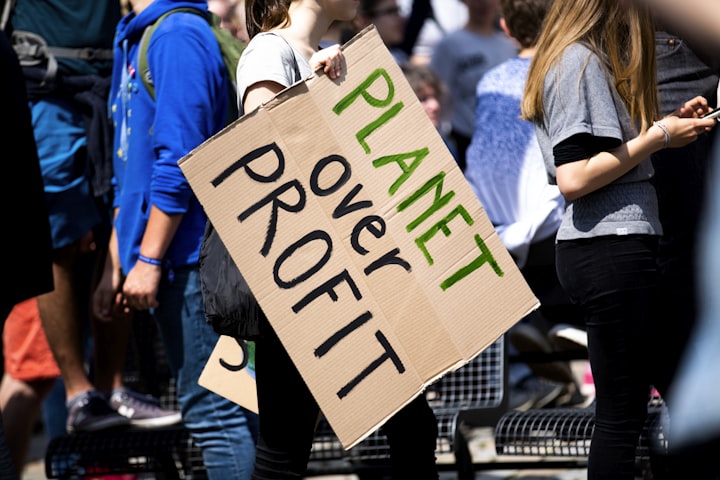How Generation Z Might Be Our Salvation
And all they have to do is complain

The cover picture was on the first page of Unsplash when searching for “Generation Z”. Unplanned, but it perfectly encompasses what I am about to write.
Generation Zs are a strange bunch. Terminally online but completely aware of their surroundings. Relaxed in their resilience and relentless in their pursuits.
I am not just planning to praise a generation here. These extremes are more often than not a crutch and opens them to exploitation. But my point is that it’s exactly what we need from them.
Allow me to qualify my statement.
When the younger generations begin to predominately populate the industry’s customer base, a change in marketing approach is vital to appeal to the new and lesser-known market. For an organization to continuously have marketing success, they must understand what their customer base wants and how to appeal to them (Shatto et al, 2016).
I believe this is the key and the bedrock on which this argument is built. In short, organisations need to pander to the dominant generation to succeed.
And I will prove this by piggybacking on the success millennials had in the last 10 years.
Several aspects of the millennial consumer have been and still are a big pain for companies looking to market to them. Corporate Social Responsibility policies that are somewhat enforced are now a requirement. Not to miss companies seeking to display any remotely sustainable aspect of their products.
What makes them tick
Although the generations are close in terms of age, their environment and the period they grew up in shaped their consumer behaviour in completely different ways. Below you can see an analysis done by McKinsey & Co. that shows just how different these two generations truly are.

This article is a great resource and I recommend a full read. However, as I went through it, I realised that Generation Z is almost in almost all aspects a natural “upgrade” to millennials.
Environmental and ethical concerns
Although in theory millennials are motivated by environmental and ethical considerations, in reality, the cost is the main factor in their decisions overall. Not to say some have environmental and social concerns as a core value when making decisions, I just say they are not in the majority.
However, millennials tend to talk a big game which ultimately forces companies to act, which arguably is as good as actual actions.
What we find in practice is that a product that is environmentally friendly or addresses several ethical concerns is a “nice to have” and is only valuable when deciding between more than one product with a similar offering.
Generation Z on the other hand, consumption is an extension of their identity, where the matter of ethical concern is ingrained in their identity. This being the case, coupled with them being natively online with basic unlimited access to information means there is no escape and little hope in having a successful product or service aimed at the younger generation.
Cost
As mentioned millennials tend to lean more towards the cost aspect. The consensus seems to be that although they are environmentally aware, they have trouble converting their knowledge and intentions into pro-environment behaviour. In short, the intention is good but the resources are just not there.
Despite all this, Generation Z has succeeded in following through. We know that they don’t have as much money as millennials. So how do they do it? By forfeiting ownership, they put the pressure back on marketers, offering a constant revenue stream in form of a subscription for the promise of a sustainable offer. By doing this, they opened the entire consumer landscape to all generations to follow, thus forcing brands to either step up or fail.
Brand loyalty
Now let’s talk brand loyalty. The article up until this point might tell you that Generation Z is less loyal compared to millennials. You are wrong.
Although they spend more, the latter have less brand loyalty than previous generations. The reason? — Cost. A very effective strategy to lure in the older of the two generations is to bombard them with constant promotions, which makes them switch much easier.
In reverse, Gen Z tends to be more loyal but that loyalty comes at a price. As a reminder, they tend to see consumption as an expression of their individual identity. And they expect the brands they interact with to live up to the same values (and be as anchored as them in ethics).
In closure
We live in a period where consumers are actively and knowingly shaping how brands source, produce and advertise their goods and services. The pressure is having an actual positive impact, spearheaded with great difficulty by millennials, and continued triumphantly by Generation Z. Opening the doors for everyone to join them, they are on track to be the generation that pushes brands to make sustainability their default. We just need the next generation to solve planned obsolescence and we are all set.
About the Creator
George Atkins
Business leader and experienced negotiator. I write about several topics including business, finance, politics and obviously negotiations.






Comments
There are no comments for this story
Be the first to respond and start the conversation.